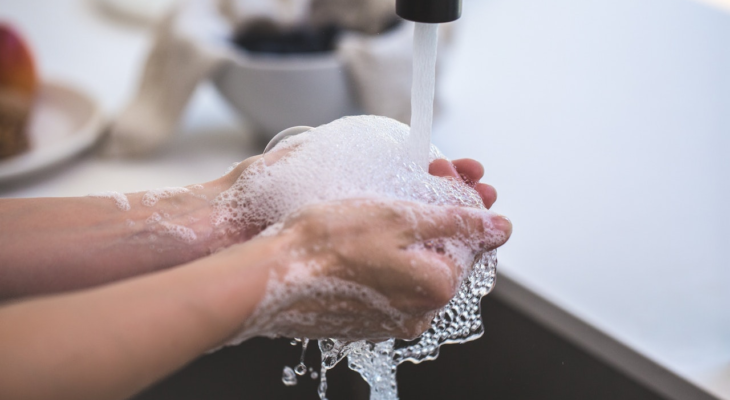Personal hygiene is crucial to our overall health and well-being, but it is often overlooked or taken for granted. While most of us know the basics, such as washing hands and brushing our teeth, a whole world of personal hygiene practices can elevate our self-care routine to a whole new level. From understanding the importance of regular showers to maintaining clean clothes, master personal hygiene beyond the basics.
The Science Behind Sweat Control
Perspiration is a natural bodily function that helps regulate body temperature and cool us down. However, excessive sweating can be uncomfortable and embarrassing, leading many people to seek ways to control it. Understanding the science behind sweat control is essential to manage excessive perspiration effectively.
Sweat is produced by sweat glands located all over our bodies, with the highest concentration in the underarms, palms, and feet. These glands are controlled by the sympathetic nervous system, which responds to stimuli such as heat, physical activity, and emotional stress. When the body temperature rises, the sympathetic nerves release acetylcholine, which triggers the sweat glands to produce sweat.
To control excessive sweating, targeting either the sweat glands themselves or the sympathetic nerves that stimulate them is important. One commonly used method is antiperspirants, which contain aluminium compounds that form a temporary plug in the sweat ducts, preventing sweat from reaching the skin’s surface. Another approach is iontophoresis, which involves passing a low-level electric current through the skin to block the sweat glands. Medications and cosmetic procedures such as Botox injections can also reduce excessive sweating by targeting the nerves that stimulate sweat production.
Mastering personal hygiene goes beyond the basics of handwashing and teeth brushing. It involves understanding the science behind bodily functions like sweat and finding ways to manage them effectively. By exploring the various methods available for sweat control, individuals can enhance their hygiene routine and improve their comfort and confidence in their daily lives.
Importance of Foot Care
Proper foot care is an essential aspect of personal hygiene that is often overlooked, yet it plays a crucial role in our overall health and well-being. Our feet carry us through our daily activities, supporting our body weight and withstanding considerable pressure. Ignoring foot care can lead to various issues, such as infections, foot odour, and even more serious conditions like athlete’s foot or ingrown toenails. Regularly washing and drying our feet, trimming nails, and moisturising them keeps our feet looking and smelling fresh and helps prevent common foot problems.
Additionally, foot care is particularly important for individuals with certain health conditions like diabetes. Diabetes can cause poor circulation and decreased sensation in the feet, making it essential to carefully monitor and care for them. Ensuring proper foot hygiene, inspecting for cuts or wounds, and wearing appropriate footwear can significantly reduce the risk of foot complications in diabetics. Regular foot care promotes good posture, reduces the risk of falls or injuries, and improves overall mobility, allowing us to maintain an active lifestyle well into our older years.
In conclusion, foot care should not be underestimated in our personal hygiene routine. It is not only about aesthetics but also about maintaining the health and well-being of our feet. By paying attention to proper foot hygiene, we can prevent common foot issues, promote foot health, and ultimately enhance our overall quality of life. Therefore, we should prioritise foot care to walk confidently and comfortably through life.
Maintaining Hygiene While Traveling
Maintaining hygiene while travelling is essential to stay healthy and comfortable throughout your journey. One of the key aspects of personal hygiene that is often overlooked is the importance of regular showers and using deodorant. When travelling, it’s easy to skip showers due to time constraints or lack of proper facilities. However, taking the time to cleanse your body thoroughly can prevent odour, rashes, and infections. If you don’t have access to a shower, consider using wet wipes or carrying a small bottle of hand sanitiser and deodorant to freshen up.
In addition to showering, it’s crucial to maintain clean clothes while travelling. A common mistake many travellers make is re-wearing clothes multiple times without washing them. This can lead to the buildup of bacteria and unpleasant odours. To maintain hygiene, pack enough clean clothes for your trip or consider doing laundry frequently if possible. Packaging a fabric freshener spray to give your clothes a quick refresh between washes is also a good idea.
Lastly, proper hand hygiene is crucial when travelling to prevent the spread of germs and infections. Carry a travel-sized hand sanitiser with at least 60% alcohol content, and use it regularly, especially before eating or touching your face. If soap and water are available, thoroughly wash your hands for at least 20 seconds. Don’t forget to clean your fingernails and the back of your hands. By incorporating regular showers, clean clothes, and proper hand hygiene into your travel routine, you can maintain good personal hygiene even when away from home.

